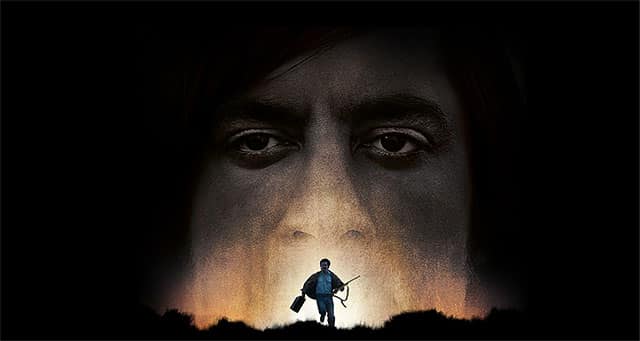No Country for Old Men – Meaning of the Final Two Dreams
Last night I watched the film No Country for Old Men. Those with an interest in poetry might recognize the film’s title from the opening line W.B. Yeats’ poem “Sailing to Byzantium“. After the last scene, I thought: “Okay, this movie doesn’t make any sense.” Then after I thought about it for fifteen minutes, it congealed in my mind. I saw how all the pieces fit together.
Law and Grace as they relate to the Two Dreams of the Sheriff
Initial thoughts. The sheriff had two dreams. First Dream: The sheriff lost the money and is accused by his father. Second dream: He follows his father to the warmth of the fire in the midst of a cold world. The former refers to the legacy that the sheriff received from his father – he was a lawman. The sheriff lost this heritage. In the beginning of the film, the sheriff marvels over lawmen who didn’t wear guns. The meaning is that lawmen, even with guns, are rather impotent in the face of evil. These lawmen of the old days knew that a gun couldn’t protect them – the sheriff realizes this when he’s in the dark motel room with Anton.
Lawmen and law (what Thomas Aquinas would call ‘extrinsic principles’ toward the good) are rather insufficient in the face of extreme evil. This is essentially the argument made by Saint Paul, that an outward law can never justify a man or a society. Saint Thomas Aquinas draws this out in more detail:
[M]an can can make laws in those matters of which he is competent to judge. But man is not competent to judge of interior movements, that are hidden, but only of exterior acts which appear: and yet for the perfection of virtue it is necessary for man to conduct himself aright in both kinds of acts. Consequently human law could not sufficiently curb and direct interior acts; and it was necessary for this purpose that a Divine law should supervene (ST I-II, q. 91, a. 4)
Outward law cannot curb great interior evil and so grace is necessary. The lawman as an enforcer of exterior law cannot “vanquish” an evil like Anton.
How Evil Rules Itself – Anton Chigurh
I like how Anton didn’t kill the sheriff in the hotel room. The sheriff didn’t “see” him and so he didn’t die. This casts light on who Anton is and how he operates.
I also finally understood that Anton the killer lived under a simple discipline – if “destiny” brings you to see him (just like how destiny brings a certain coin to your possession), then you are destined to die. He doesn’t think that it’s his fault. It’s destiny. People say to him, “You don’t have to do this.” His unspoken answer is “Yes, I do have to do this.”
The only way he could have “mercy” is by an appeal to the destiny of the coin – a coin toss. Also, the coin opens the air vent, which leads to the money. Coin travel and coin flips define the modus operandi of Anton.
All in all, it’s a very tight a film. It was disturbing so I’ll probably wait before I see it again. Still, it’s a great film for a group discussion – especially as it relates to evil. As my uncle said, “Anton Chagirh is probably the best villain in a movie since Darth Vader.”
You may also like:
What to Watch Next
SHOP THE TAYLOR MARSHALL STORE
Dive Deeper

GET CONFIDENT IN YOUR FAITH
Explore the fascinating world of Catholic teachings with Dr. Marshall. Together you’ll unpack the brilliant answers the Church gives to tough questions about the Faith. The best part: you go at your own pace. Start this exciting journey today.


 >
>



